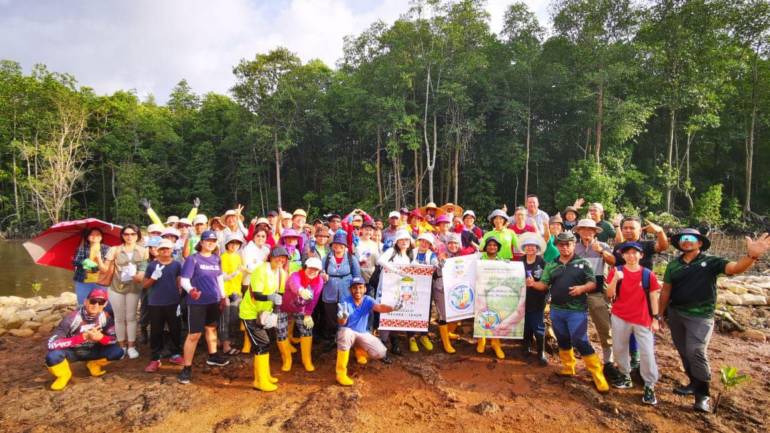Caritas Malacca Johore Diocese launches hospital care program and mangrove restoration

In late July 2024, the Caritas Malacca Johore Diocese (MJD) in Malaysia took significant steps in addressing both healthcare and environmental concerns through a series of impactful initiatives.
On July 21, the Catholic social action arm launched its inaugural Hospital Patient Care Program, highlighted by their donation of two ECG machines to Sultanah Aminah Hospital in Johor Bahru.
Malacca Johore Bishop Bernard Paul was present during the presentation of the machines to the hospital management, which are expected to boost their medical support and services to patients with heart conditions.
In addition, more than 80 hygiene goodie fun packs were distributed to the hospital’s pediatrics ward.
This hospital patient care initiative was made possible through supporters’ donations and the assistance of the non-government organization Pertubuhan Kebajikan Sulaman Kaseh Negeri Johor.
On July 28, Bishop Paul also led Caritas MJD’s mangrove planting project at the Sungai Pulai Forest Reserve in Pontian.
The ecological initiative, called Mangrove Restoration ++, was organized by the diocese’s Creation Justice Commission in collaboration with Malaysian Nature Society and the Jabatan Perhutanan.
It was part of the observance of the International Day for the Conservation of Mangrove Ecosystem on July 26.
The project saw around 450 mangrove saplings planted, with 250 of them sponsored by the Diocese of Malacca Johore.
In a diocesan news update, Bishop Paul noted that mangroves make up less than 2% of the marine environments but account for 10% to 15% of carbon burial, four times more carbon dioxide than terrestrial mountain forests.
“One acre of mangrove forest can store about 1,450 pounds of carbon per year (163 g carbon per square meter per year) — roughly the same amount emitted by a car,” he wrote.
The prelate also enumerated various benefits of preserving the mangrove ecosystem, including rich oxygen generation, carbon capture, erosion reduction, and water cycle regulation.
Furthermore, Bishop Paul said mangrove ecosystems can be adequate sources of income and goods for the people.
“Communities can profit from eco-tourism, as well as from cultural and recreational service development… [They] can fish and harvest raw materials like lumber and medicinal roots,” he explained.
Radio Veritas Asia (RVA), a media platform of the Catholic Church, aims to share Christ. RVA started in 1969 as a continental Catholic radio station to serve Asian countries in their respective local language, thus earning the tag “the Voice of Asian Christianity.” Responding to the emerging context, RVA embraced media platforms to connect with the global Asian audience via its 21 language websites and various social media platforms.














